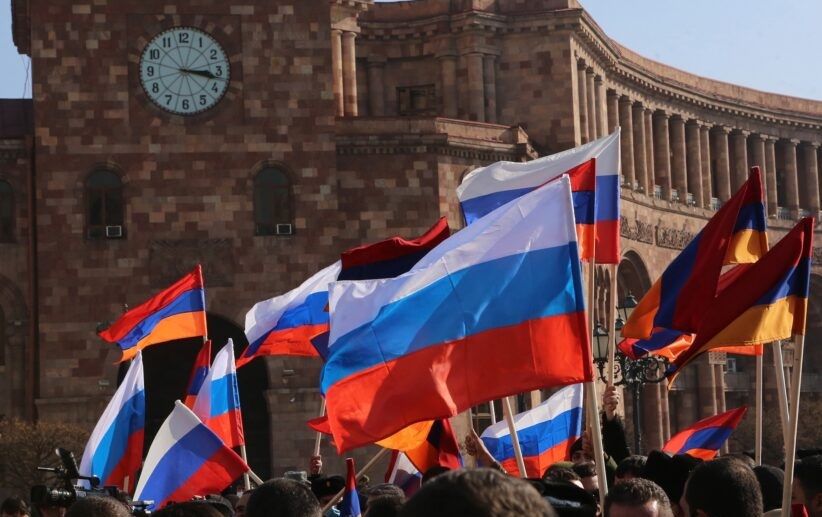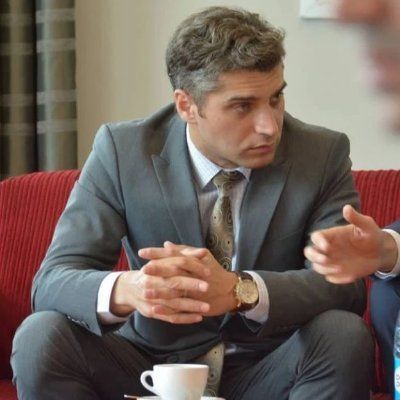What could be impact of Russia-Armenia relations in region? - analysis

- Russia wants to completely exclude Armenia from the CSTO
- The Russian military base can be removed from Gyumri
- Armenia's bringing the EU mission group to the region and Russia's reaction to it
- Armenia's steps to open the Zangazur Corridor and Russia's role in the process
2023 can be noted as the most dynamic year of processes in the South Caucasus, especially in the Garabagh economic region of Azerbaijan. On April 23 of this year, with the establishment of the Lachin border checkpoint, the situation, which changed dramatically, brought clarity to every dark issue that was expected in the end. In fact, if we look closely at what happened in the last nine months, it can be seen that the most active element in these processes was Western politics. As for the reason, it is more appropriate to approach it from a broader perspective.
This can even be partially attributed to the victory of the West
in its pressure against the Kremlin. However, the other winning
side of this victory is Azerbaijan. Because in the current
situation, due to the correct and well-planned political steps,
Azerbaijan has managed to fully ensure its territorial integrity
amid such tensions.
Since the Western forces stepped into the South Caucasus, they were
able to bring the Armenian-Russian relations to a tense state. The
situation has reached such a point that Yerevan has already decided
to leave Moscow's orbit completely. This situation also affected
the mutual relations between the peacekeeping contingent and the
Armenians in Garabagh until the separatist regime was completely
removed from the territories.
Today, Armenia is considering withdrawing from the CSTO, which was formed in 2002 to fulfill the obligations of the 1992 Collective Security Treaty. Russia, in turn, is reviewing the documents on the complete withdrawal of Armenia from the CSTO membership. Although the CSTO was created at the time as an attempt to build on the successful alliance with the Warsaw Pact, the organization became relatively weak. When Armenia became a member of the CSTO, the lands of Azerbaijan were still under its occupation. However, this could not mean that the CSTO created an advantage over its military power. Until the Patriotic War took place on September 27, 2020, Armenia could not fully analyze the level of its military potential. Thus, there were three main factors that perplexedly reassured the Armenian government: a) the fact that Armenia (as an invader) is the de facto ruler in the territory of Garabagh; b) Armenia's confidence in Russia's military and political hegemony; c) and finally Prime Minister Nikol Pashinyan's use of forces in the West as plan 'b'.
If Armenia thought that one of these three factors would be stronger, it did not take into account the level of development of the Azerbaijani army. On the 5th day of the Patriotic War, Armenia lost more than 200,000 military equipment and had to retreat. Although Armenia was provided with enough weapons, its tactical use in battles was at a very low level. It seems that Armenia has not been able to benefit from military exercises to a sufficient extent within the CSTO, of which it is a member. As the Armenian forces retreated from Garabagh, their self-confidence rapidly decreased. Even after the war, many questions arose within the Armenian authorities about the defeat. It was believed that either there was a strong betrayal in the army, or the CSTO, which they were a member of, or Russia, which they trusted, could not support them sufficiently. Therefore, as the processes continued rapidly, deep rifts began to appear in the relations between Armenia and Russia. According to Konstantin Zatulin, the first deputy chairman of the CIS Affairs, Eurasian Integration and Relations with Compatriots Committee of the Russian State Duma, Armenia may announce its withdrawal from the Collective Security Treaty Organization (CSTO) in the near future. But this is still the beginning of the road for Armenia.
According to another information, the Russian military base No. 102, located in the Gyumri province of Armenia since December 29, 1941, may be canceled. However, that base was established by the Soviet authorities near the borders of Turkiye for the purpose of border control, and during that period, the territory of Armenia was deliberately kept under full control by Russian military troops. Today, the tense relations between Armenia and Russia have already raised the issue of removing the military base from the area. Although it is not a convincing fact, the removal of the base from the territory will, on the other hand, create real conditions for the freer movement of Western forces within Armenia. The EU mission group is currently intervening in the military structure in Armenia. It even closely participates with Armenia in carrying out various provocations. Although these provocations were initially aimed at Azerbaijan, the goal is to target Russia. In any case, if Russia reacts to this at some point, it may lead to a military conflict in the region. Although it is Armenia that suffers more seriously than this, instability in the South Caucasus in general can be a step taken for the benefit of various circles. Such a situation can also prevent the implementation of many large-scale projects from an economic point of view. Thus, the tension in Russian-Armenian relations seems to be a reason that can strengthen the intervention of foreign forces in the Caucasus region.
On the other hand, the Armenian-Russian tension may also affect the processes related to Zangazur Corridor. Considering the non-objectivity of the West, it is already clear what steps Armenia will take in the opening of the Zangazur Corridor. If Armenia creates conditions for the West to interfere in its internal politics, it is inevitable that the control of the international transport corridor will not be entirely in the hands of Armenia.
Processes show it once again that leaving Armenia in the region out of control can create any dangerous situation in the region. The only solution is for Armenia to learn to conduct an independent policy and refrain from attracting foreign forces to the region. On the other hand, Armenia cannot take the right step in politics unless it abandons the principles of revanchism. This can lead to its complete destruction one day and its territory turning into a war zone like Syria and Ukraine.
---
Elnur Enveroglu is AzerNews’ deputy editor-in-chief, follow him on @ElnurMammadli1
Follow us on Twitter @AzerNewsAz
Here we are to serve you with news right now. It does not cost much, but worth your attention.
Choose to support open, independent, quality journalism and subscribe on a monthly basis.
By subscribing to our online newspaper, you can have full digital access to all news, analysis, and much more.
You can also follow AzerNEWS on Twitter @AzerNewsAz or Facebook @AzerNewsNewspaper
Thank you!

